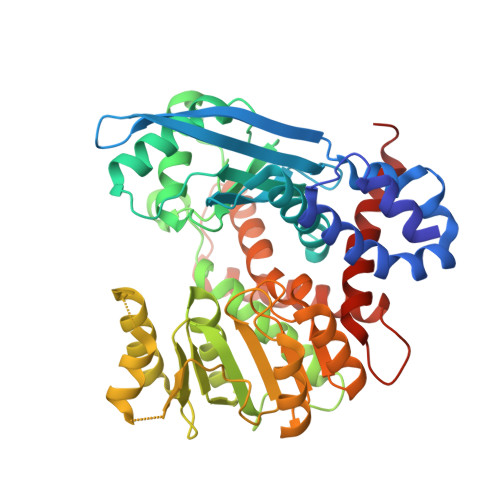Macro-to-Micro Structural Proteomics: Native Source Proteins for High-Throughput Crystallization.
Totir, M., Echols, N., Nanao, M., Gee, C.L., Moskaleva, A., Gradia, S., Iavarone, A.T., Berger, J.M., May, A.P., Zubieta, C., Alber, T.(2012) PLoS One 7: e32498-e32498
- PubMed: 22393408
- DOI: https://doi.org/10.1371/journal.pone.0032498
- Primary Citation of Related Structures:
2XHY, 3N6Q, 3NBU, 3SBO - PubMed Abstract:
Structural biology and structural genomics projects routinely rely on recombinantly expressed proteins, but many proteins and complexes are difficult to obtain by this approach. We investigated native source proteins for high-throughput protein crystallography applications. The Escherichia coli proteome was fractionated, purified, crystallized, and structurally characterized. Macro-scale fermentation and fractionation were used to subdivide the soluble proteome into 408 unique fractions of which 295 fractions yielded crystals in microfluidic crystallization chips. Of the 295 crystals, 152 were selected for optimization, diffraction screening, and data collection. Twenty-three structures were determined, four of which were novel. This study demonstrates the utility of native source proteins for high-throughput crystallography.
- Department of Molecular and Cell Biology, University of California, Berkeley, California, United States of America.
Organizational Affiliation:

















